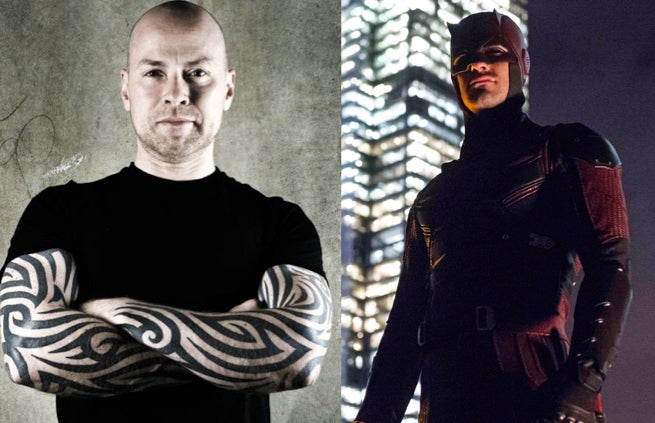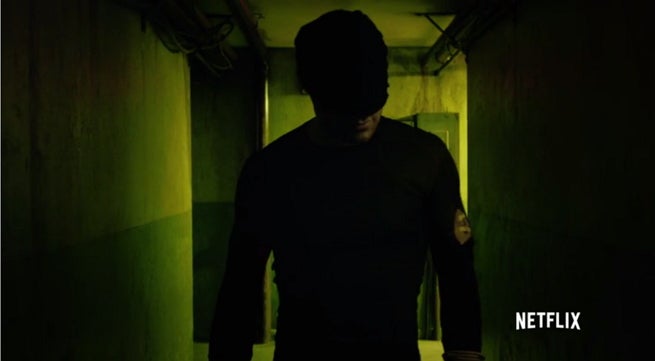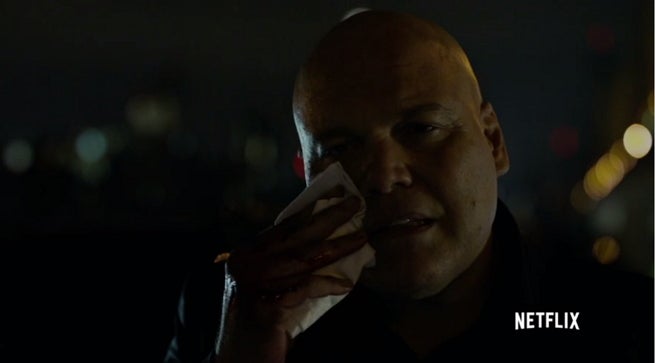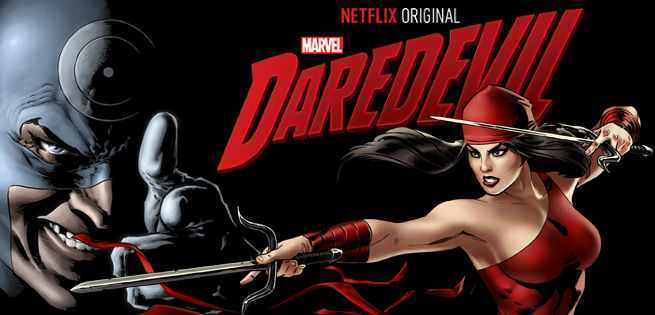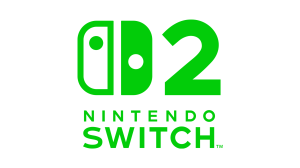The true Kingpin of Hell’s Kitchen isn’t Wilson Fisk or Matt Murdock—it’s Steven DeKnight.
Videos by ComicBook.com
As the showrunner and executive producer on Netflix’s Daredevil, DeKnight called the major shots in bringing the Man Without Fear’s world to life. And as a pupil of Frank Miller’s classic Daredevil run from the eighties, it was DeKnight who ensured that the same raw, noir storytelling translated onto the small screen. It was a monumental task, especially when he only had eight months to complete the series after former EP Drew Goddard’s departure for Sony’s Sinister Six. But like Daredevil himself, DeKnight embraced the challenge in what he described as his proudest show yet.
Below, DeKnight chatted with ComicBook.com about helming his ultra-gritty world, future Daredevil storylines he hopes to explore (hint: one involves Silt-Man), and the cross-over potential a post-Defenders season could have.
Coming off of Starz’s Spartacus, what made Daredevil the right project for you to tackle next?
I was just minding my business over at Starz. I had wrapped up writing a first season of a Band of Brothers meets Halo show called Incursion, that they’re still developing over there. I had another year left on my Starz contract, so I developing. I had written one pilot for them, and I was starting to work on another one, when I got the call from my agent. My old buddies Jeph Loeb and Drew Goddard wanted to talk to me about Daredevil. They said it was top-secret at the moment, but Drew had to leave the show to honor the commitment he made to write and direct the Sinister Six Spider-Man movie.
Drew had written the first two scripts, and i think they were finishing up a third script. They had an imprint for where they were going for the rest of the season. But they were a little under the gun, because they were going to start shooting in about 14 weeks. Drew Goddard and I worked together on Buffy; we wrote scripts for Angel. So we knew each other very well. I wasn’t really looking to do anything, honestly. I had been working pretty steadily at Starz for seven years, and I was happy with my development deal with them. But I went over, I read the first two scripts, I heard the pitch, and I knew it was just too damn good to turn down. I grew up reading comics. Jeph Loeb and Drew and a lot people involved grew up reading comics and loving the characters. I had always loved Daredevil, so it was a great opportunity. I loved the fact that they were taking a more gritty, grounded approach to this little dark corner of the Marvel Universe with the street level heroes. That’s what really got me to sign on.
It’s interesting that you mention the gritty approach as a selling point, because it seems that, recently there’s been a backlash against grim, border-line cynical superhero storytelling. But obviously, this series pushes against that opinion. So where do you find the right balance between darkness and light in superhero storytelling?
I think it absolutely depends on which character you’re talking about. If I was doing a Spider-Man show, I would not execute it this way. That’s not the character. That’s not really the world. But, he has a much more smart-alecky attitude. So, I definitely wouldn’t approach him the same way. And you look at the overall scope of comic book characters, there are some who really lend themselves to this gritty, dark storytelling. I think Daredevil is one of them. I think the Punisher is another.
I think some the backlash came with The Man of Steel, and the way it didn’t quite jive with what people expected from a comic. I found a lot to love in The Man of Steel, and I’m a huge Zack Snyder fan. But again, I think it ultimately depends on who the character is. I’m delighted to hear that Deadpool is going to be R-Rated, because it should be. But honestly, if I was doing an entire Aquaman movie, I doubt I would make it R-rated. I think it really depends on the character, and that should drive whether or not it’s really dark, gritty, or a little more adult.
Speaking of Superman and taking different approaches to different characters, you executive-produced Smallville, another comic book property filtered through a particularly intimate lens. But what were the main differences were between taking a smaller scale approach on a character like Superman, and a smaller scale approach on Daredevil?
I’ve had a great experience on both of the comic book related shows that I’ve worked on, and they could not be more different. Smallville was very much, and rightly so, a CW show. It had a lot of soap opera elements in it, and I say that in the best kind of way. There’s a wonderful investment in Clark and Lana. But I obviously wouldn’t have gone that dark with them in that arena. And things like size and scope, that all depends on the budget. We made Daredevil as big as we could with the resources we had. That said, we were always very cognizant of the fact that we wanted to tell a story that felt like it was connected to the Marvel Universe, but wasn’t wasn’t trying to recreate the cinematic universe. That would have been vastly impossible with a TV schedule and budget. And that’s one of the things that I applaud Marvel for. It’s a brilliant choice to take these street-level heroes, that probably on their own wouldn’t justify risking a $200 million movie on, but are still fantastic, phenomenal characters. For them to take the risk, when there’s absolutely no reason for them to, because they’re doing so well with the cinematic universe and it’s tone. To really allow us to go in a darker, grittier, and more mature with the subject matter, I couldn’t have been happier. I really thought that Daredevil requires that kind of take.
I’ve read Daredevil for decades now, and I love a lot of the runs, but like most people, I was really struck by Miller’s run, which got really gritty with the Elektra stuff. I remember this issue during the Born Again run, where the Kingpin has stripped Matt of everything. Matt is on the verge of insanity, and he comes across Turk as Santa Claus, because Turk is in some kind of scam. Historically, Daredevil could beat Turk up, but this time Turk pulls out a switchblade and stabs Matt in the stomach. It was that kind of really gritty storytelling that we wanted to do. It really lends itself to this character.
And later, I was very much influenced by the Brian Micharl Bendis/Alex Maleev run. I thought it was an erudite, gritty kind of story that felt so real-world. Those are really the main influences on the comic book side of what we intended to do.
Now that the show is out, are you happy with everyone’s reactions? What do you make of the feedback so far?
I’m shocked and delighted. Before the show was released, I told anyone who would listen that I loved a lot of things that I’d done, but in many ways, I’m prouder of this show than anything I’ve worked on, from start to finish. The cast, the crew, the stunts, the cinematography, the writer—everything just felt like it came together. I felt like we were working on something very special, and it was very difficult. It wasn’t an easy shoot or an easy process.
But, we all had such a love and passion for the material. I think that’s really important, when you’re approaching material based on a comic book. I think it was a huge bonus for us that the main creative forces behind the show—Jeph Loeb, Drew Goddard, myself, Joe Quesada—we all grew up reading this material voraciously, and loving and respecting it. It was just such a joy to be surrounded by people who got it, and wanted to do the same thing, and really do it justice. And to really try something new for the Marvel Universe.
The fan reaction has been overwhelmingly positive, but of course you can’t please everyone. I remember telling my Twitter fans, look: a lot of you will love it, some of you wont like it, and that’s cool. You can’t try to please everybody. Some people complained that the pace was to slow, but ultimately we were trying to make a crime drama, not an action show. It just so happens that the show has some pretty damn-good action, but we said: “Let’s shoot for the Wire. We’ll never make it, because there’s only one Wire, we can’t recreate that magic, but it’s a great place to shoot towards.” And then we added the superhero elements on top of that.
Did anyone point something interesting about the show, for better worse, that you didn’t realize initially?
Not so far. Not too many people have made it through all 13 episodes. I’m still waiting to see what people liked and what they didn’t like. But one of the creative joys of doing a show like this, is as opposed to Network, is that before anything anything ever airs, we’re done. Everything’s shot, unlike when you’re doing 22 episodes for Network. When you do 22 episodes, you start seeing people’s reactions when you’re only halfway through production. And there’s usually some sort of panicked reaction to what people are saying. You pull back on storylines, you adjust what you’re doing, and I think that’s always incredibly detrimental to the creative process. You have to stick to your plan. So, I’m sure some fans’ reactions will have some influence down the line with the other shows, and this show—if it gets a second season—but so far, I think the two biggest complaints I’ve heard are the pacing. Some people didn’t like the, dare I say, “Premium Cable” pacing for a “superhero show.” And one or two people complained that Matt was wearing the black vigilante outfit too long. I disagree with those comments, but to each their own.
The first season really covered all of Matt and Daredevil’s origin. Now that that story’s been told, and he’s officially Daredevil, where would you like to take Matt and his story next? What storylines and characters would you like to incorporate into Daredevil?
If we’re fortunate enough to get a second season, since there are three other shows happening almost simultaneously until The Defenders, it’s a little hard to plan right now. But there are so many great stories to pull from. From big story arcs, like the Elektra and Bullseye epic, to great secondary villains and arcs. People like Gladiator and the Owl would be great. We always talk about how we’d love to get Stilt Man in there. I don’t know how we’d do it on this show, because it’s a little outside of the box. But there are so many great places to go, and that’s not even considering the story potential once all the other shows are up and running. You could bring in Danny Rand, or Luke Cage, and have Matt work with them. And the wonderful bits with Jessica Jones, where she works with Matt for his law firm. When you have decades and decades of material to draw from and be influenced by, there’s just so many places to go.
A lot of different directors or producers have one moment, or issue, from their character’s history that they always go back to for inspiration. For instance, Chris Nolan cited “The Man Who Falls” for Batman Begins, and Bryan Singer noted a specific Alex Ross painting for Superman Returns. Did you have a similar “totem” to keep your inspiration on track?
It’s all of the Frank Miller and Brian Bendis/Alex Maleev work. Those were my strongest influences. Of course, there is one classic moment with Daredevil, where he’s fighting Bullseye over the city. They both fall, and Daredevil snags Bullseye and is holding over the city. Then, he drops Bullseye onto the street. It was such a stunning moment, that a hero would do that. It really made an impact on me, as it really addressed the endless cycle of catching the bad guy, putting him in jail, and waiting for him to escape again, in superhero comics. But seeing Matt Murdock break that cycle, and decide that he wouldn’t let that continue anymore, was huge. Of course, Bullseye survived, but it was such a powerful moment for hero to try to kill his opponent. Up to that point, comic book heroes would only throw the villains in jail. So I thought that was such a great tonal move. And speaking of tone, Brian Michael Bendis’ run on Daredevil captured that “premium cable” tone for a comic so well. I was heavily influenced not only by Bendis’ writing, but Alex Maleev’s art. His art had a huge influence on how we wanted the show to look.
To wrap up, what’s one piece of advice that you would give to AKA Jessica Jone’s show runner Melissa Rosenberg, and Luke Cage’s show runner Cheo Coker?
Well, I’ll start by saying that they don’t need any wisdom from me. They know what they’re doing. Besides that, honestly, I’d say take a nap whenever you can. When I took over the show from Drew Goddard, I worked on the show for eight months, and I never slept in those eight months. It is incredibly gruelling, but very rewarding. Also, i highly recommend that when you’re shooting in New York in the winter, get yourself a pair of snowboarding pants. Otherwise, you will freeze to death. (laughs). They saved my life. Shooting in New York all night, during the winter is about as cold you’d think it is.
But those guys will have everything under control. I cannot wait to see what they come up with. I think Brian Miachel Bendis’ run with her on Alias is one of the best comics out there. I cannot wait to see come to life. And Luke Cage is another character that I grew up with, along with Danny Rand. Finally, we may get some Heroes for Hire down the line. Just look at the landscape of all the different offerings with these comic book shows, and there really is something for everybody. It is just a golden age to be someone who grew up with comics, and loves comics.
Awesome. Thanks so much for your time, Steven.
Daredevil is now on Netflix.

